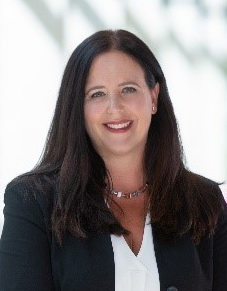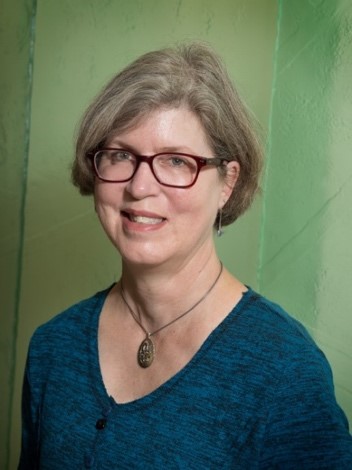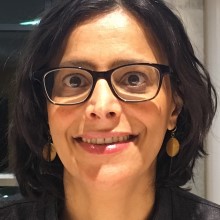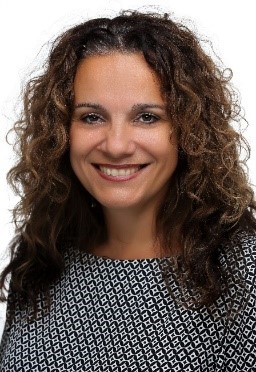SPEAKERS
International Conference on Knowledge Translation in Rehabilitation 2021
 Gregory Aarons, PhD is a Professor of Psychiatry at UC San Diego, Co-Director of the UCSD Dissemination and Implementation Science Center (UCSD-DISC), and Director of the Child and Adolescent Services Research Center (CASRC). Dr. Aarons is a clinical and organizational psychologist who focuses on improving behavioral health care in service systems in the US and internationally. He is co-developer of the Exploration, Preparation, Implementation, Sustainment (EPIS) framework. His research, funded by the National Institute on Drug Abuse, National Institute of Mental Health, Centers for Disease Control, and the W.T. Grant Foundation focuses on identifying and improving system, organizational, and individual factors that support implementation and sustainment of evidence-based practices and quality of care in health and allied health care settings. Much of Dr. Aarons’ work focuses on aligning and testing leadership and organization support strategies and training managers to become effective leaders to support evidence-based practice implementation and sustainment in behavioral health (https://implementationleadership.com). His implementation and scale-up strategies are being used and tested in behavioral health, schools, child welfare, HIV prevention, and trauma treatment in the US, Norway, and West Africa. His most recent work is in developing and fostering community-academic partnerships to increase the use of research evidence in policy and practice.
Gregory Aarons, PhD is a Professor of Psychiatry at UC San Diego, Co-Director of the UCSD Dissemination and Implementation Science Center (UCSD-DISC), and Director of the Child and Adolescent Services Research Center (CASRC). Dr. Aarons is a clinical and organizational psychologist who focuses on improving behavioral health care in service systems in the US and internationally. He is co-developer of the Exploration, Preparation, Implementation, Sustainment (EPIS) framework. His research, funded by the National Institute on Drug Abuse, National Institute of Mental Health, Centers for Disease Control, and the W.T. Grant Foundation focuses on identifying and improving system, organizational, and individual factors that support implementation and sustainment of evidence-based practices and quality of care in health and allied health care settings. Much of Dr. Aarons’ work focuses on aligning and testing leadership and organization support strategies and training managers to become effective leaders to support evidence-based practice implementation and sustainment in behavioral health (https://implementationleadership.com). His implementation and scale-up strategies are being used and tested in behavioral health, schools, child welfare, HIV prevention, and trauma treatment in the US, Norway, and West Africa. His most recent work is in developing and fostering community-academic partnerships to increase the use of research evidence in policy and practice.
 Wenonah Campbell, PhD John and Margaret Lillie Chair in Childhood Disability Research, is a Scientist at CanChild and Associate Professor in the Speech-Language Pathology Program, School of Rehabilitation Science, McMaster University. Dr. Campbell and her research team use varied methodologies to study inclusive, population-based models of health support services in schools. Their research involves engaging stakeholders and building partnerships across the education and health sectors. The practice and science of knowledge translation are interwoven throughout Dr. Campbell’s program of research.
Wenonah Campbell, PhD John and Margaret Lillie Chair in Childhood Disability Research, is a Scientist at CanChild and Associate Professor in the Speech-Language Pathology Program, School of Rehabilitation Science, McMaster University. Dr. Campbell and her research team use varied methodologies to study inclusive, population-based models of health support services in schools. Their research involves engaging stakeholders and building partnerships across the education and health sectors. The practice and science of knowledge translation are interwoven throughout Dr. Campbell’s program of research.
 Christine Chambers, PhD is a clinical psychologist, Canada Research Chair (Tier 1) in Children’s Pain, Killam Professor of Pediatrics and Psychology & Neuroscience at Dalhousie University, and the Scientific Director of Solutions for Kids in Pain/Solutions pour la douleur chez les enfants (SKIP). SKIP’s mission is to improve children's pain management by mobilizing evidence-based solutions through coordination and collaboration. Dr. Chambers’ research, based in the Centre for Pediatric Pain Research at the IWK Health Centre, is aimed at improving the assessment and management of children’s pain. She has published over 150 articles in peer-reviewed scientific journals and was identified as one of the top 10 most productive women clinical psychology professors in Canada. Her award-winning #ItDoesntHaveToHurt initiative for parents generated 150 million views worldwide, trended on social media, and was featured in national and international media. She is a leader and innovator in patient engagement, partnership, and mobilization of health research.
Christine Chambers, PhD is a clinical psychologist, Canada Research Chair (Tier 1) in Children’s Pain, Killam Professor of Pediatrics and Psychology & Neuroscience at Dalhousie University, and the Scientific Director of Solutions for Kids in Pain/Solutions pour la douleur chez les enfants (SKIP). SKIP’s mission is to improve children's pain management by mobilizing evidence-based solutions through coordination and collaboration. Dr. Chambers’ research, based in the Centre for Pediatric Pain Research at the IWK Health Centre, is aimed at improving the assessment and management of children’s pain. She has published over 150 articles in peer-reviewed scientific journals and was identified as one of the top 10 most productive women clinical psychology professors in Canada. Her award-winning #ItDoesntHaveToHurt initiative for parents generated 150 million views worldwide, trended on social media, and was featured in national and international media. She is a leader and innovator in patient engagement, partnership, and mobilization of health research.
 Laura Damschroder, PhD is an implementation researcher, who collaborates on many publicly funded research projects through Implementation Pathways, LLC. She is also a full-time investigator with the Veterans Affairs Center for Clinical Management Research in Ann Arbor, Michigan and Adjunct Associate Professor at Queensland University of Technology in Brisbane, Australia. Ms. Damschroder is an international leader in advancing the science of implementation and is lead developer of the Consolidated Framework for Implementation Research (CFIR), one of the most widely used frameworks in implementation science. She has been a visiting scholar to many institutions around the world, led national workshops, and is a mentor for many early-career implementation researchers.
Laura Damschroder, PhD is an implementation researcher, who collaborates on many publicly funded research projects through Implementation Pathways, LLC. She is also a full-time investigator with the Veterans Affairs Center for Clinical Management Research in Ann Arbor, Michigan and Adjunct Associate Professor at Queensland University of Technology in Brisbane, Australia. Ms. Damschroder is an international leader in advancing the science of implementation and is lead developer of the Consolidated Framework for Implementation Research (CFIR), one of the most widely used frameworks in implementation science. She has been a visiting scholar to many institutions around the world, led national workshops, and is a mentor for many early-career implementation researchers.
 Monika Kastner, PhD is the Research Chair in Knowledge Translation (KT) and Implementation at North York General Hospital, Associate Professor in the Institute of Health Policy, Management and Evaluation, as well as through the Department of Family and Community Medicine at the University of Toronto. Monika’s research interests and goals are to make a positive impact on the health of vulnerable populations with the use of innovative eHealth technologies, and to advance the science and practice of KT and health services research. Monika is the recipient of the CIHR New Investigator Award and the Early Researcher Award from the Ontario Ministry of Research, Innovation and Science in recognition of her work on the KeepWell initiative (funded by the Ontario Ministry of Health and the CIHR), which involves creating and implementing a unique health application that empowers older adults and their providers to optimize multimorbidity management.
Monika Kastner, PhD is the Research Chair in Knowledge Translation (KT) and Implementation at North York General Hospital, Associate Professor in the Institute of Health Policy, Management and Evaluation, as well as through the Department of Family and Community Medicine at the University of Toronto. Monika’s research interests and goals are to make a positive impact on the health of vulnerable populations with the use of innovative eHealth technologies, and to advance the science and practice of KT and health services research. Monika is the recipient of the CIHR New Investigator Award and the Early Researcher Award from the Ontario Ministry of Research, Innovation and Science in recognition of her work on the KeepWell initiative (funded by the Ontario Ministry of Health and the CIHR), which involves creating and implementing a unique health application that empowers older adults and their providers to optimize multimorbidity management.
 Cara C. Lewis, PhD is a clinical psychologist and associate investigator at Kaiser Permanente Washington Health Research Institute. She is interested in developing, testing, and refining strategies to improve the integration of evidence-based practices into routine practice settings. Dr. Lewis is an international leader in implementation science, serving as past president of the Society for Implementation Research Collaboration, and co-founding editor-in-chief of Implementation Research and Practice.
Cara C. Lewis, PhD is a clinical psychologist and associate investigator at Kaiser Permanente Washington Health Research Institute. She is interested in developing, testing, and refining strategies to improve the integration of evidence-based practices into routine practice settings. Dr. Lewis is an international leader in implementation science, serving as past president of the Society for Implementation Research Collaboration, and co-founding editor-in-chief of Implementation Research and Practice.
 Samira Abbasgholizadeh-Rahimi, Eng. PhD is an Assistant Professor in the Department of Family Medicine at McGill University, Associate Academic Professor of Mila-Quebec AI Institute, and affiliated scientist at Lady Davis Institute for Medical Research of the Jewish General Hospital. She is society officer of Canadian Operational Research Society and Director of Artificial Intelligence in Family Medicine (AIFM). Dr. Rahimi is Fonds de Recherche du Québec-Santé (FRQS) Junior 1 Research Scholar in human-centered AI in primary health care. With an interdisciplinary background, she is interested in the development, evaluation, and implementation of clinical decision support tools and patient decision aids, as well as integrating human-centered AI tools in primary health care. Her work as Principal Investigator has been funded by the Fonds de recherche du Québec – Santé (FRQS), Natural Sciences and Engineering Research Council (NSERC), Roche Canada, Brocher Foundation (Switzerland), and the Strategy for Patient-Oriented Research (SPOR)-Canadian Institutes of Health Research (CIHR).
Samira Abbasgholizadeh-Rahimi, Eng. PhD is an Assistant Professor in the Department of Family Medicine at McGill University, Associate Academic Professor of Mila-Quebec AI Institute, and affiliated scientist at Lady Davis Institute for Medical Research of the Jewish General Hospital. She is society officer of Canadian Operational Research Society and Director of Artificial Intelligence in Family Medicine (AIFM). Dr. Rahimi is Fonds de Recherche du Québec-Santé (FRQS) Junior 1 Research Scholar in human-centered AI in primary health care. With an interdisciplinary background, she is interested in the development, evaluation, and implementation of clinical decision support tools and patient decision aids, as well as integrating human-centered AI tools in primary health care. Her work as Principal Investigator has been funded by the Fonds de recherche du Québec – Santé (FRQS), Natural Sciences and Engineering Research Council (NSERC), Roche Canada, Brocher Foundation (Switzerland), and the Strategy for Patient-Oriented Research (SPOR)-Canadian Institutes of Health Research (CIHR).
 Joe Schwarcz, PhD is the Director of McGill University’s Office for Science and Society which has the mission of separating sense from nonsense. He is well known for his informative and entertaining public lectures on topics ranging from the chemistry of love to the science of aging. Professor Schwarcz has received numerous awards for teaching chemistry and for interpreting science for the public and was the first non-American ever to win the American Chemical Society’s prestigious Grady-Stack Award for demystifying chemistry. He was awarded the 2010 Montreal Medal which is the Canadian Chemical Institute’s premier prize recognizing lifetime contributions to chemistry in Canada. In 2018 he was the recipient of McGill University’s “Principal’s Prize for Public Engagement Through Media.” He has also been awarded honorary degrees by Athabasca University, Cape Breton University, the University of Windsor and Simon Fraser University. Professor Schwarcz hosts "The Dr. Joe Show" on Montreal's CJAD and has appeared hundreds of times on The Discovery Channel, CTV, CBC, TV Ontario and Global Television. He also writes a newspaper column entitled “The Right Chemistry” and has authored 18 books. Professor Schwarcz also an amateur magician and often spices up his presentations with a little magic.
Joe Schwarcz, PhD is the Director of McGill University’s Office for Science and Society which has the mission of separating sense from nonsense. He is well known for his informative and entertaining public lectures on topics ranging from the chemistry of love to the science of aging. Professor Schwarcz has received numerous awards for teaching chemistry and for interpreting science for the public and was the first non-American ever to win the American Chemical Society’s prestigious Grady-Stack Award for demystifying chemistry. He was awarded the 2010 Montreal Medal which is the Canadian Chemical Institute’s premier prize recognizing lifetime contributions to chemistry in Canada. In 2018 he was the recipient of McGill University’s “Principal’s Prize for Public Engagement Through Media.” He has also been awarded honorary degrees by Athabasca University, Cape Breton University, the University of Windsor and Simon Fraser University. Professor Schwarcz hosts "The Dr. Joe Show" on Montreal's CJAD and has appeared hundreds of times on The Discovery Channel, CTV, CBC, TV Ontario and Global Television. He also writes a newspaper column entitled “The Right Chemistry” and has authored 18 books. Professor Schwarcz also an amateur magician and often spices up his presentations with a little magic.
 Shannon Scott, PhD is a Professor in the Faculty of Nursing and Canada Research Chair in Knowledge Translation in Child Health at the University of Alberta in Edmonton, Canada. Her research program (ECHO – translating Evidence in Child Health to enhance Outcomes) aims to improve the health outcomes of children Canada through the application of the best research evidence. As a founding co-Director of TREKK (Translating Emergency Knowledge for Kids) –a 7-year Knowledge Mobilization Initiative funded by the Networks of Centres of Excellence program in Canada, she is actively improving the outcomes of children needing emergency care in Canada. She is a Distinguished Professor funded by the Stollery Science Lab program and was inducted into the Royal Society of Canada’s College of New Scholars, Artists in Scientists. She has held more than $7 million dollars of research funding as Principal Investigator and over $35 million as a co-investigator. She has published over 140 papers in peer reviewed journals, delivered more than 350 presentations around the globe.
Shannon Scott, PhD is a Professor in the Faculty of Nursing and Canada Research Chair in Knowledge Translation in Child Health at the University of Alberta in Edmonton, Canada. Her research program (ECHO – translating Evidence in Child Health to enhance Outcomes) aims to improve the health outcomes of children Canada through the application of the best research evidence. As a founding co-Director of TREKK (Translating Emergency Knowledge for Kids) –a 7-year Knowledge Mobilization Initiative funded by the Networks of Centres of Excellence program in Canada, she is actively improving the outcomes of children needing emergency care in Canada. She is a Distinguished Professor funded by the Stollery Science Lab program and was inducted into the Royal Society of Canada’s College of New Scholars, Artists in Scientists. She has held more than $7 million dollars of research funding as Principal Investigator and over $35 million as a co-investigator. She has published over 140 papers in peer reviewed journals, delivered more than 350 presentations around the globe.
 Dr. Sharon E. Straus MD, FRCP(C) is a geriatrician and clinical epidemiologist who trained at the University of Toronto and the University of Oxford. She is the Director of the Knowledge Translation Program and Physician-in-Chief, St. Michael’s Hospital and Professor in Department of Medicine, University of Toronto. She holds a Tier 1 Canada Research Chair in Knowledge Translation and Quality of Care and has authored more than 400 peer-reviewed publications and 3 textbooks in evidence-based medicine, knowledge translation and mentorship. Since 2015, she has consistently been in the top 1% of highly cited clinical researchers as per Web of Science and has an H-index of 91. She holds more than $57 million in peer-reviewed research grants as a principal investigator. She has received national awards for mentorship, research and education.
Dr. Sharon E. Straus MD, FRCP(C) is a geriatrician and clinical epidemiologist who trained at the University of Toronto and the University of Oxford. She is the Director of the Knowledge Translation Program and Physician-in-Chief, St. Michael’s Hospital and Professor in Department of Medicine, University of Toronto. She holds a Tier 1 Canada Research Chair in Knowledge Translation and Quality of Care and has authored more than 400 peer-reviewed publications and 3 textbooks in evidence-based medicine, knowledge translation and mentorship. Since 2015, she has consistently been in the top 1% of highly cited clinical researchers as per Web of Science and has an H-index of 91. She holds more than $57 million in peer-reviewed research grants as a principal investigator. She has received national awards for mentorship, research and education.
Panel Moderators
 Sara Ahmed PT, PhD is an Associate Professor at the School of Physical and Occupational Therapy at McGill University. Dr. Ahmed conducts research aimed at improving health outcomes for individuals with chronic disease. Her research includes studies that 1) address the challenges of using patient reported outcomes (e.g. health-related quality of life, self-efficacy) in chronic disease management programs, and the use of advanced psychometric approaches for improving the precision and efficiency of outcome evaluations, 2) develop and evaluate the impact of chronic disease computer-enabled self-management interventions integrated into electronic personal health records (e.g. web-based asthma and COPD self-management applications), and 3) knowledge exchange and transfer related to best practices for chronic disease management.
Sara Ahmed PT, PhD is an Associate Professor at the School of Physical and Occupational Therapy at McGill University. Dr. Ahmed conducts research aimed at improving health outcomes for individuals with chronic disease. Her research includes studies that 1) address the challenges of using patient reported outcomes (e.g. health-related quality of life, self-efficacy) in chronic disease management programs, and the use of advanced psychometric approaches for improving the precision and efficiency of outcome evaluations, 2) develop and evaluate the impact of chronic disease computer-enabled self-management interventions integrated into electronic personal health records (e.g. web-based asthma and COPD self-management applications), and 3) knowledge exchange and transfer related to best practices for chronic disease management.
 Dana Anaby, OT(c), PhD is an Associate Professor at the School of Physical and Occupational Therapy at McGill University. Dr. Anaby’s research encompasses the areas of participation and well-being among children and youth with physical disabilities, with a special focus on leisure participation and the impact of the environment. Her studies involve testing intervention plans to enhance community engagement such as the PREP (Pathways and Resources for Engagement and Participation), as well as developing measurement-focused projects such as the Participation and Environment Measure for Children and Youth (PEM-CY). She also leads Knowledge Translation initiatives; particularly those aimed at promoting participation-based practices. Dr. Anaby holds the FRQ-S Research Scholars Salary Award - Junior 2 (Chercheurs-boursiers).
Dana Anaby, OT(c), PhD is an Associate Professor at the School of Physical and Occupational Therapy at McGill University. Dr. Anaby’s research encompasses the areas of participation and well-being among children and youth with physical disabilities, with a special focus on leisure participation and the impact of the environment. Her studies involve testing intervention plans to enhance community engagement such as the PREP (Pathways and Resources for Engagement and Participation), as well as developing measurement-focused projects such as the Participation and Environment Measure for Children and Youth (PEM-CY). She also leads Knowledge Translation initiatives; particularly those aimed at promoting participation-based practices. Dr. Anaby holds the FRQ-S Research Scholars Salary Award - Junior 2 (Chercheurs-boursiers).
 André Bussières, PhD is an Assistant Professor at the School of Physical and Occupational Therapy at McGill University, and a Full Professor in the Chiropractic Department at l’Université du Québec à Trois-Rivières (UQTR) since 2002. He held a Canadian Chiropractic Research Foundation (CCRF) Professorship in Rehabilitation Epidemiology (McGill University) while leading the Canadian Chiropractic Guideline Initiative (2012-2018). He serves as an Associate Editor of the Journal of the Canadian Chiropractic Association and BMC Health Service Research and is an Editorial Board member of Chiropractic & Manual Therapies. He was in private practice between 1993 and 2007. Dr. Bussières' research focuses on clinical practice guidelines development, uptake and application to improve patient care and health outcome, knowledge synthesis, mixed-methods research, understanding determinants of professional behaviour change, and implementation of best practices in the educational and primary care settings.
André Bussières, PhD is an Assistant Professor at the School of Physical and Occupational Therapy at McGill University, and a Full Professor in the Chiropractic Department at l’Université du Québec à Trois-Rivières (UQTR) since 2002. He held a Canadian Chiropractic Research Foundation (CCRF) Professorship in Rehabilitation Epidemiology (McGill University) while leading the Canadian Chiropractic Guideline Initiative (2012-2018). He serves as an Associate Editor of the Journal of the Canadian Chiropractic Association and BMC Health Service Research and is an Editorial Board member of Chiropractic & Manual Therapies. He was in private practice between 1993 and 2007. Dr. Bussières' research focuses on clinical practice guidelines development, uptake and application to improve patient care and health outcome, knowledge synthesis, mixed-methods research, understanding determinants of professional behaviour change, and implementation of best practices in the educational and primary care settings.
 Tania Janaudis-Ferreira, PhD is an Assistant Professor at the School of Physical and Occupational Therapy at McGill University, a Junior Scientist with the Research Institute of the McGill University Health Centre and an Investigator with the Canadian Donation and Transplantation Research Program (CDTRP). The overall goal of Dr. Janaudis-Ferreira's research program is to improve care and rehabilitation outcomes of individuals with chronic lung disease and solid organ transplant patients. She has been awarded several national grants as principal investigator from the Canadian Institutes of Health Research (CIHR), Kidney Foundation of Canada, Canadian Lung Association and CDTRP and is currently a recipient of the Fonds de recherche du Québec – Santé (FRQS) Junior 1 Career Award. Dr. Janaudis-Ferreira is a co-founder of the Canadian Network for Rehabilitation and Exercise for Solid Organ Transplant Optimal Recovery (CAN-RESTORE) which is a network dedicated to support dissemination of evidence and knowledge translation of best practices in transplant rehabilitation.
Tania Janaudis-Ferreira, PhD is an Assistant Professor at the School of Physical and Occupational Therapy at McGill University, a Junior Scientist with the Research Institute of the McGill University Health Centre and an Investigator with the Canadian Donation and Transplantation Research Program (CDTRP). The overall goal of Dr. Janaudis-Ferreira's research program is to improve care and rehabilitation outcomes of individuals with chronic lung disease and solid organ transplant patients. She has been awarded several national grants as principal investigator from the Canadian Institutes of Health Research (CIHR), Kidney Foundation of Canada, Canadian Lung Association and CDTRP and is currently a recipient of the Fonds de recherche du Québec – Santé (FRQS) Junior 1 Career Award. Dr. Janaudis-Ferreira is a co-founder of the Canadian Network for Rehabilitation and Exercise for Solid Organ Transplant Optimal Recovery (CAN-RESTORE) which is a network dedicated to support dissemination of evidence and knowledge translation of best practices in transplant rehabilitation.
 Keiko Shikako-Thomas OT(c), PhD is an Associate Professor at the School of Physical and Occupational Therapy at McGill University. Her research focuses on the promotion of healthy living and the human rights of children with disabilities and knowledge translation science and practice. Her research program adopts a participatory approach to engage different stakeholders, including policymakers, children and their families in finding solutions to change the environment, informing policymaking and promoting the participation of children with disabilities in different life roles and activities. She co-leads and participates in a series of knowledge translation initiatives, including CHILD LeisureNET, a network of over 200 stakeholders in Canada developing solutions and strategies to promote leisure participation for children with disabilities, the childhooddisability.ca website, aimed at disseminating research information in an accessible format for users, the Knowledge Translation strategic planning for physical rehabilitation in Québec, and the NeuroDevNet Knowledge Translation core.
Keiko Shikako-Thomas OT(c), PhD is an Associate Professor at the School of Physical and Occupational Therapy at McGill University. Her research focuses on the promotion of healthy living and the human rights of children with disabilities and knowledge translation science and practice. Her research program adopts a participatory approach to engage different stakeholders, including policymakers, children and their families in finding solutions to change the environment, informing policymaking and promoting the participation of children with disabilities in different life roles and activities. She co-leads and participates in a series of knowledge translation initiatives, including CHILD LeisureNET, a network of over 200 stakeholders in Canada developing solutions and strategies to promote leisure participation for children with disabilities, the childhooddisability.ca website, aimed at disseminating research information in an accessible format for users, the Knowledge Translation strategic planning for physical rehabilitation in Québec, and the NeuroDevNet Knowledge Translation core.
 Aliki Thomas OT(c) erg, PhD is an Associate Professor, School of Physical and Occupational Therapy, McGill University, research scientist at the Institute of Health Sciences Education, Faculty of Medicine, McGill University, and Director of Research at the Jewish Rehabilitation Hospital (CRIR). As an FRQ-S Junior 2 research scholar, Dr. Thomas’ research is guided by the principles of the ‘Scholarship of Practice’ whereby research, education and practice are interwoven and interconnected with the aim of improving the health, function and participation of individuals in our society. Her research program seeks to understand the developmental trajectory from the classroom, where entry-level EBP competencies are initially acquired, to the authentic clinical practice context where graduates are expected to navigate multiple influences to provide evidence-based and patient-centered care. Her research program is organized under three main themes: 1) Education for EBP in the Health Professions; 2) Knowledge Translation for Evidence-Based Education and Clinical Practice and 3) Education-Practice Nexus. She is leading several implementation projects in stroke rehabilitation and co-leading KT initiatives such as the REPAR-FRQS funded Knowledge Translation Strategic Initiative in Rehabilitation in Quebec (KT-SIRQ).
Aliki Thomas OT(c) erg, PhD is an Associate Professor, School of Physical and Occupational Therapy, McGill University, research scientist at the Institute of Health Sciences Education, Faculty of Medicine, McGill University, and Director of Research at the Jewish Rehabilitation Hospital (CRIR). As an FRQ-S Junior 2 research scholar, Dr. Thomas’ research is guided by the principles of the ‘Scholarship of Practice’ whereby research, education and practice are interwoven and interconnected with the aim of improving the health, function and participation of individuals in our society. Her research program seeks to understand the developmental trajectory from the classroom, where entry-level EBP competencies are initially acquired, to the authentic clinical practice context where graduates are expected to navigate multiple influences to provide evidence-based and patient-centered care. Her research program is organized under three main themes: 1) Education for EBP in the Health Professions; 2) Knowledge Translation for Evidence-Based Education and Clinical Practice and 3) Education-Practice Nexus. She is leading several implementation projects in stroke rehabilitation and co-leading KT initiatives such as the REPAR-FRQS funded Knowledge Translation Strategic Initiative in Rehabilitation in Quebec (KT-SIRQ).
